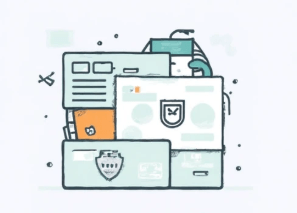A Comprehensive Guide to Bitcoin Wallets: Choosing the Right One for Your Needs
Choosing the right Bitcoin wallet is crucial. This guide simplifies the selection process, explaining different types and security measures to protect your digital assets. Find your perfect Bitcoin wallet today!
Choosing the right Bitcoin wallet is crucial for securing your digital assets. The process might seem daunting initially, but with a clear understanding of the various options available, you can easily navigate the selection process. This guide breaks down the different types of Bitcoin wallets and helps you determine which one best suits your needs and technical expertise. We’ll also cover essential security measures to protect your Bitcoin from theft or loss. Let’s dive in.
Understanding Bitcoin Wallets: Types and Functionality
A Bitcoin wallet isn’t a physical container holding coins. Instead, it’s a software or hardware program that stores your private keys, which are essential for accessing and managing your Bitcoin. These keys allow you to authorize transactions on the Bitcoin blockchain. Think of it as a digital key to your Bitcoin bank account. Different types of wallets cater to various levels of technical expertise and security needs.
Hot Wallets: Convenience and Accessibility
Hot wallets are connected to the internet, offering quick and easy access to your Bitcoin. However, this convenience comes with a trade-off: increased vulnerability to hacking and malware. Several types exist within this category:
- Web Wallets: These are online platforms that allow you to access your Bitcoin through a web browser. They’re easy to use but are considered the least secure type of hot wallet due to their inherent reliance on internet connectivity.
- Mobile Wallets: These wallets are applications installed on your smartphone or tablet. They offer better security than web wallets, but still pose risks if your device is compromised.
- Desktop Wallets: Desktop wallets are software applications installed on your computer. They generally offer better security than web or mobile wallets, but your computer must be secure from malware and unauthorized access.
Cold Wallets: Security Above All Else
Cold wallets, on the other hand, are not connected to the internet, making them significantly more secure than hot wallets. They are often preferred by users who hold substantial amounts of Bitcoin. The most common type of cold wallet is a hardware wallet.
Hardware Wallets: The Gold Standard of Bitcoin Security
Hardware wallets are physical devices that store your private keys offline. They are considered the most secure option for storing Bitcoin, offering a significant layer of protection against online threats. These devices typically have a small screen and buttons for navigation, allowing you to interact with your Bitcoin without exposing your keys to the internet.
Paper Wallets: A DIY Approach to Cold Storage
Paper wallets represent a low-cost, offline storage solution. Your public and private keys are printed on a piece of paper. While simple, they are prone to physical damage, loss, or theft. Carefully consider the security implications before using this method, especially for significant amounts of Bitcoin.
Choosing the Right Bitcoin Wallet: Factors to Consider
Selecting the appropriate Bitcoin wallet depends on several factors. Your technical skills, the amount of Bitcoin you hold, and your comfort level with security risks are all crucial considerations. Let’s analyze these aspects in more detail.
Security Considerations: Prioritizing Protection
Security should be your top priority when choosing a Bitcoin wallet. Consider the risks associated with each type of wallet and select the option that best aligns with your risk tolerance. Hardware wallets offer the highest level of security, while web wallets are the least secure. Regularly update your software and follow best practices to minimize vulnerabilities.
User-Friendliness: Ease of Use and Navigation
The ease of use varies significantly across different Bitcoin wallets. Some wallets are designed with simplicity in mind, while others require a certain level of technical expertise. Consider your comfort level with technology when making your selection. If you are new to cryptocurrencies, a user-friendly interface is crucial.
Functionality and Features: Beyond Basic Storage
Beyond basic storage, some wallets offer additional features, such as the ability to send and receive Bitcoin easily, integrate with other services, or support multiple cryptocurrencies. Assess your needs and choose a wallet that provides the features you require.
Cost and Fees: Weighing the Expenses
While many Bitcoin wallets are free to use, some may charge fees for specific services or transactions. Consider the costs involved before making your decision. Hardware wallets, for instance, involve an upfront purchase cost, but their enhanced security often justifies the expense for long-term storage.
Setting Up Your Chosen Bitcoin Wallet: A Step-by-Step Guide
The specific steps involved in setting up your Bitcoin wallet will vary depending on the type of wallet you choose. However, there are some common steps that apply to most wallets. Let’s outline the general process.
1. Download and Installation: Getting Started
Begin by downloading the wallet application from a trusted source. Verify the authenticity of the downloaded file before proceeding with the installation. Ensure that your computer or device is protected from malware before installing any wallet software.
2. Creating a New Wallet: Generating Your Keys
Once the wallet is installed, you’ll need to create a new wallet. This process involves generating a pair of keys: a public key and a private key. Your public key is like your bank account number, allowing others to send you Bitcoin. Your private key is like your password, enabling you to access and spend your Bitcoin. Keep your private key absolutely secret and secure.
3. Backing Up Your Wallet: Safeguarding Your Assets
Backing up your wallet is crucial for protecting your Bitcoin. The method of backup will vary depending on the type of wallet you have. For hardware wallets, this may involve keeping the device safe and writing down the recovery phrase. For software wallets, this might involve creating a backup file and storing it securely offline.
4. Receiving Your First Bitcoin: Testing Your Setup
After setting up your wallet, you can test it by receiving a small amount of Bitcoin. This allows you to verify that your wallet is functioning correctly and that you can access your funds.
Security Best Practices: Protecting Your Bitcoin
Even with a secure wallet, maintaining strong security practices is crucial to protect your Bitcoin. Here are some essential tips:
- Strong Passwords: Use complex and unique passwords for all your accounts, including your Bitcoin wallet.
- Two-Factor Authentication (2FA): Enable 2FA whenever possible to add an extra layer of security.
- Regular Software Updates: Keep your wallet software updated to patch security vulnerabilities;
- Antivirus Software: Install and regularly update antivirus software on your computer or device.
- Secure Storage: Store your backup information securely and offline.
- Beware of Phishing Scams: Be cautious of suspicious emails or websites that may attempt to steal your credentials.
Protecting your Bitcoin requires vigilance and proactive security measures. By diligently following these practices, you significantly reduce the risk of theft or loss.
Choosing and securing a Bitcoin wallet is a crucial step in your journey into the world of cryptocurrency. By understanding the different options and prioritizing security, you can confidently manage and protect your digital assets. Remember, the security of your Bitcoin is paramount; choose wisely and practice safe habits. The process might seem complex at first, but with careful planning and adherence to best practices, you will successfully navigate the process and gain control over your Bitcoin holdings. The rewards of secure Bitcoin ownership are well worth the effort invested in understanding and implementing these critical steps. Start today, and secure your financial future.







